Career Paths George C. Marshall Could Have Chosen
Early in his 43-year Army career, George Marshall considered leaving the Army for positions at Virginia Military Institute. After his retirement from the Army, major national companies may have been interested in hiring him, and there were rumors at one time that a university might hire him as president.
While Marshall was at Fort Reno, Oklahoma, in 1906, he wrote to the head of Virginia Military Institute to indicate his interest in the position of commandant of cadets, even though he lacked the minimum experience for such a position, and the position went to another officer. The VMI superintendent asked Marshall in 1909 if he would like to be considered for the commandant’s position. Marshall said he was interested, but he withdrew his name because Maj. Gen. Franklin Bell told the VMI superintendent that Marshall was too valuable as an instructor at Fort Leavenworth’s General Staff School and could not be spared.
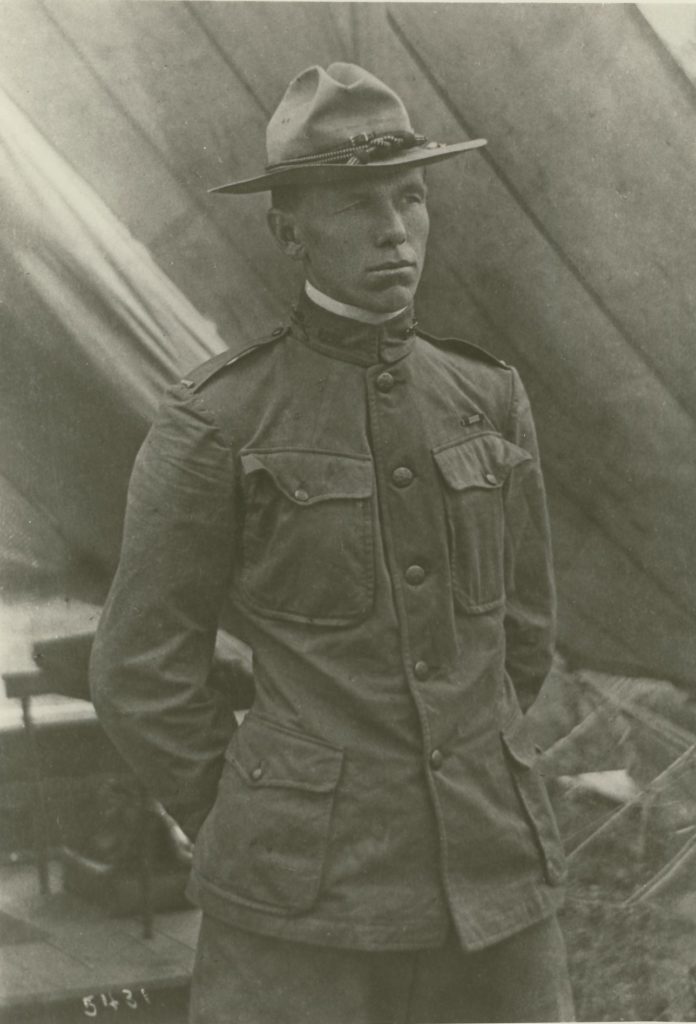
Lt. George Marshall at Fort Leavenworth, KS, 1909
Marshall told Gen. Edward Nichols, VMI superintendent, in 1915 that he had thought about resigning from the Army because prospects for advancement were so restricted: “I do not feel it right to waste all my best years in a vain struggle against insurmountable obstacles.” He implied that he would seek employment in business, and he thought he would be successful if he worked as hard at that profession as he did in the Army. Nichols advised him to stay in the Army, saying he would eventually reach the Army’s highest levels.
VMI again asked again in 1922 if Marshall would serve as commandant, but he said that he needed troop duty for his career advancement. In 1926, sensing that VMI was interested in hiring him as superintendent, Marshall said he would “never consider throwing up my army career for the uncertainties” of that position. He also thought it might be too difficult to please the VMI Board of Visitors.
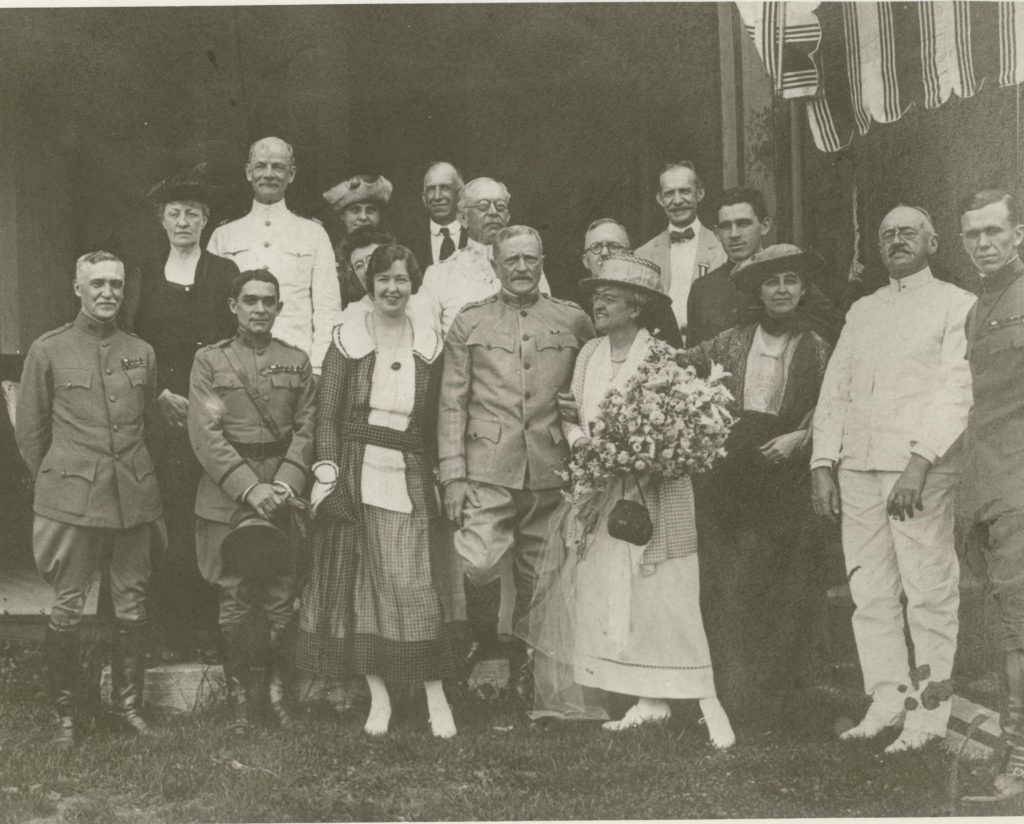
Maj. George Marshall, far right, standing next to Virginia Military Superintendent Lt. Gen. Edward Nichols.
The possibility of a VMI appointment arose again in 1937, when he expressed hesitancy for financial reasons: “After about 35 years’ service, I would be throwing away a matter of about $2,000 a year for the rest of my life.…Having just viewed the hazards of a profound depression, I am loath to walk away from as sure a thing as the United States government.” He also seemed to be aware of great pending changes in the world: “With the world in its present turmoil no one can prophesy what the outcome will be, and as I made my life occupation that of a soldier I hesitate to take any decision which might leave me eliminated at the critical moment.”
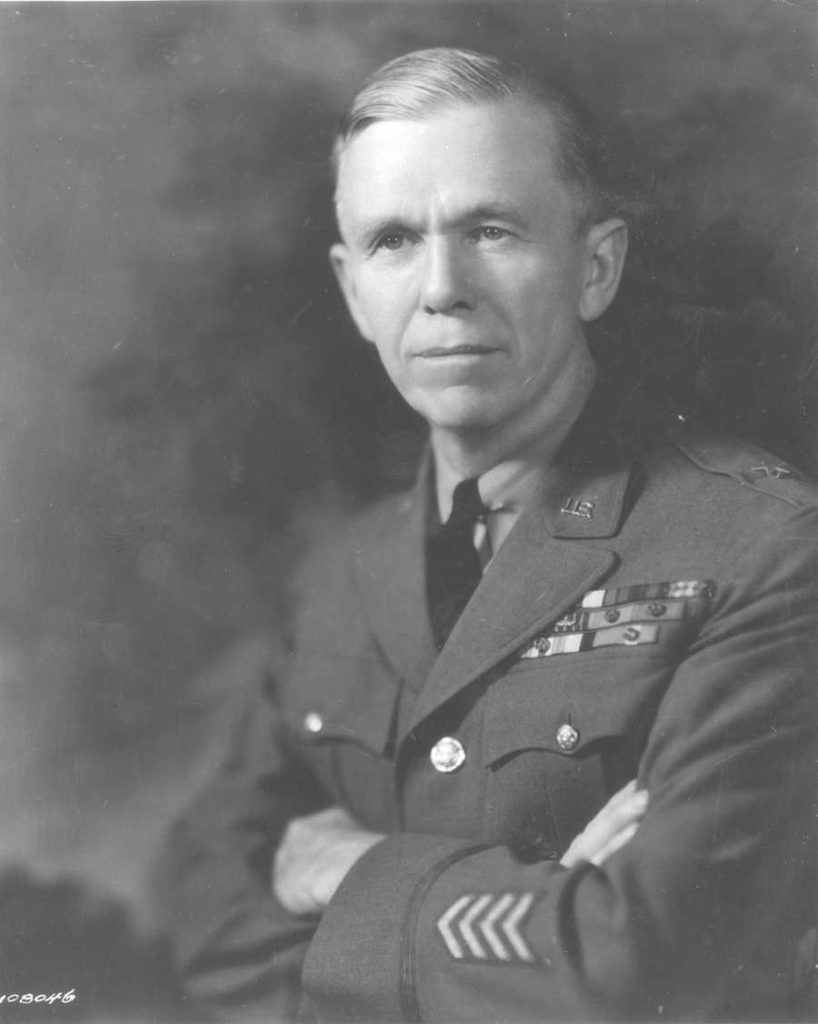
Brig. Gen. George Marshall, 1937, when he was considered for VMI Superintendent to replace retiring Lt. Gen. John Lejeune, shown below.
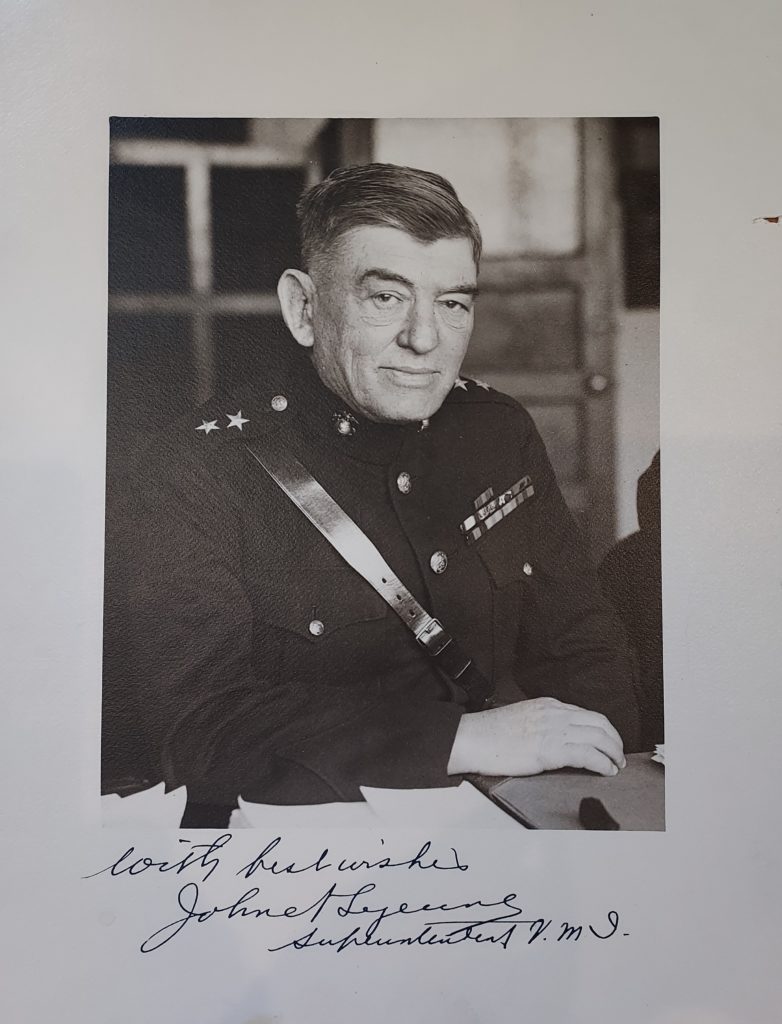
Lt. Gen. John Lejeune, VMI Superintendent 1929-1937
Marshall may have been offered positions in the civilian sector after retiring from the Army. Sgt. William Heffner, his orderly, recounted that every time he drove him past the offices of Merrill-Lynch on K Street in Washington, DC, Marshall would say, “I could have had a job up there at $90,000 a year.” Heffner also claimed that Stevens Textiles Company of North Carolina wanted to hire Marshall at $100,000 a year and that the University of North Carolina had tried to hire him as president.
The UNC possibility never had substance. On June 11, 1948, the UNC student newspaper reported that Marshall had been the “surprise” commencement speaker on June 7, 1948. The arrangements had been made the previous week but had been kept secret until it could be verified that Marshall would speak. Kenneth C. Royal, secretary of the Army and from nearby Durham, received an honorary degree at the commencement. Marshall said he took time off from his official duties to attend because of the “great service” that Dr. Frank Graham, UNC’s president and a friend of Marshall’s, had done for his country. In his speech, Marshall told the graduates to avoid snap judgments about foreign problems, saying that “we Americans are sometimes inclined to emotional reactions, which can be very dangerous in matters concerned with international relationships.” He advised them that it took more than “superficial reading of a single newspaper or listening to a favorite radio broadcaster to get at the true facts.”
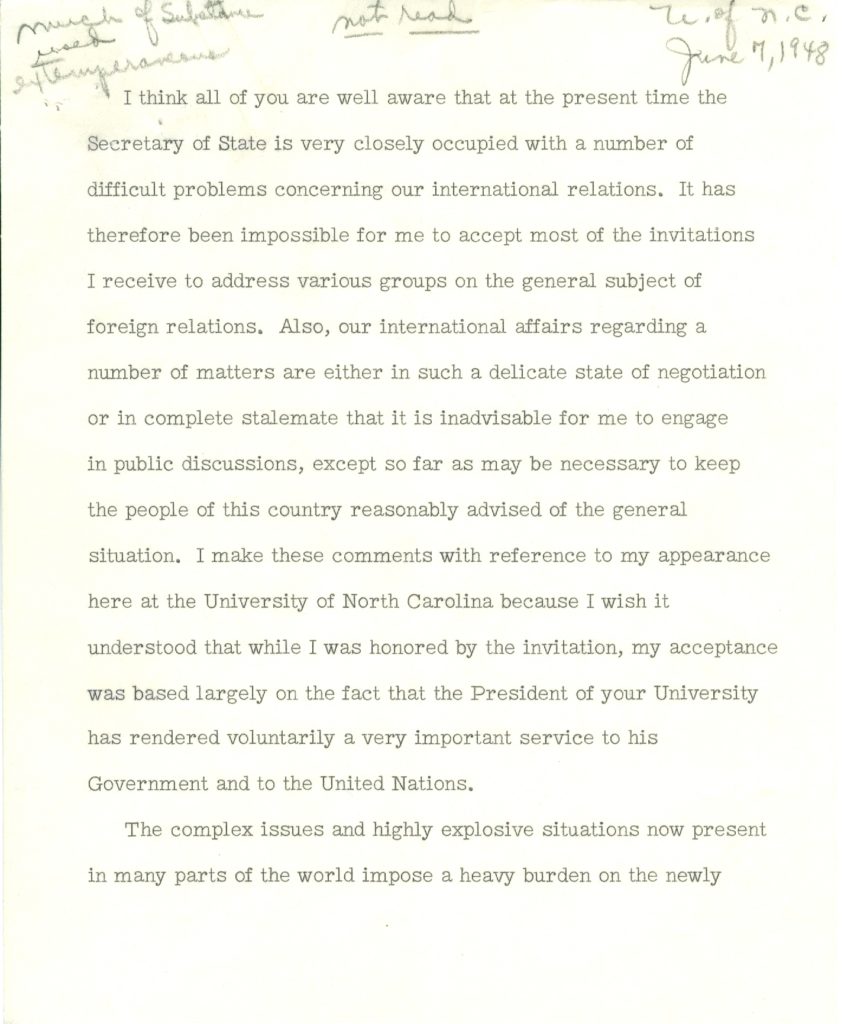
First page of Marshall’s June 7, 1948 commencement speech at the University of North Carolina. His notes indicate that he did not read the speech, but gave an “extemporaneous” speech with “much of [its] substance used.”
Tom Bowers is the former docent director at George Marshall’s Dodona Manor in Leesburg, Virginia. He was professor and dean of the School of Journalism and Mass Communication at the University of North Carolina at Chapel Hill from 1971 to 2006.
